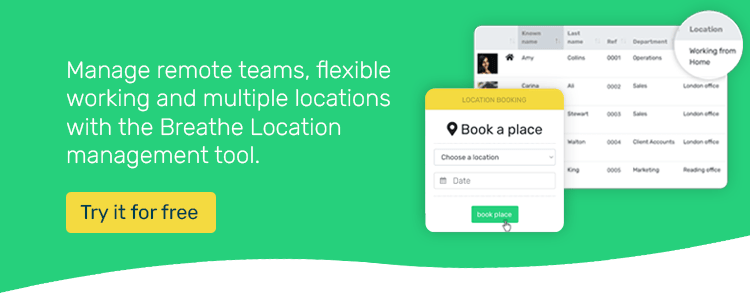With an incredible 82% of workers wanting to work flexibly, it’s clear that the tide is turning towards a more flexible approach to working hours.
Historically limited to lower pay grade office-based roles, flexible working is steadily becoming part of a variety of organisational set-ups. Even the NHS has changed the way it promotes flexible working for nurses – a role previously dominated by long hours and rigid shift patterns.
But how does flexible working actually benefit employees? What is it about a more adaptable work pattern that so appeals to people?
Flexible working policies can improve employee wellbeing
Flexible working policies can be an important part of your employee wellbeing strategy thanks to the way it helps reduce stress and allows employees to lead healthier lives. Hybrid working has become the new norm in workplaces all over the UK.
By giving employees more time to exercise and eat more healthily, flexible working can improve physical and mental health. What’s more, spending time with family, friends and pets helps reduce stress and increase a person’s sense of wellbeing and life satisfaction.
But even without these benefits, simply removing a commute once or twice a week will help reduce employee stress levels by cutting out the hours they spend driving or travelling by train.
Flexible working helps employees manage their personal commitments
Set working hours can make routine commitments a nightmare for employees to organise.
Tasks such as the school run, booking and attending medical appointments, arranging cover if your child is sick and off school or caring for older or unwell relatives become difficult to fit it. This increases the stress on the employee, making them feel torn between their commitments.
Increased flexibility gives your employees the chance to reconcile their professional, private and family lives. Allowing your employees to handle these duties without added pressure from their boss makes a big difference. If an employee is ill and requires a doctor or hospital appointment, do you really want to add to their stress by making it difficult for them to attend?
Flexible working can increase job satisfaction
There’s a huge amount of research which shows employees who work flexibly are more satisfied, engaged and productive. Flexible working employees are shown to be more likely to increase their discretionary effort compared to those who do not work flexibly.
Even more excitingly, a study by the IBM Smarter Workforce Institute found that the reduced stress and ability to better balance home and professional responsibilities means employees who work flexibly can actually accelerate their career progression.
Flexible working supports a healthier work/life balance
A life that’s all work and no play is bad for everyone. Flexible working gives employees a chance to explore their passions and live a more fulfilling life. Whether they want to volunteer, become the best at their sport or improve their knowledge by studying, flexible working can allow for this.
By helping your employees find a more fulfilling balance, you not only get healthier, happier employees, you also build a happier, healthier business culture.
Flexible working creates improved workplace inclusion
Too many businesses struggle with inclusivity. Rigid structures and insufficient time mean deprioritising initiatives to actively improve workplace inclusivity.
But with the benefits of a more inclusive workplace plain to see, SMEs that take steps to become more inclusive will thrive. Flexible working arrangements can be one part of this inclusivity drive.
Flexible working helps support inclusivity in a range of ways. It allows employees with caring responsibilities to work. It also gives employees with health conditions which may otherwise be difficult to accommodate a chance to create a satisfying career. What’s more, flexible working gives you a chance to attract a geographically broader spread of candidates. Individuals who would otherwise avoid a costly or time-consuming commute may be more likely to apply for a job with you. Sometimes the cost of a commute can be enough to put off employees with tight budgets.
And it's not just hours that can be flexible, either. Deloitte have announced that their people will be able to choose when to take UK public holidays on the days that are most meaningful to them.
Jackie Henry, Managing Partner for People & Purpose at Deloitte, said "...we are committed to creating an inclusive environment - one where people feel like they belong and are better able to thrive, respecting different backgrounds and individual circumstances."
When thinking about the future of flexible working, there's a lot of room for employers to get creative.
Ultimately, the benefits that employees experience from a flexible working set-up will benefit the organisations they work for. With a wide range of flexible working options available – from hybrid and remote working through to compressed hours, employers and employees can work together to find a balance that supports business priorities and employee wellbeing for a healthier and more productive outcome.

Author: Laura Sands
Laura is a writer who enjoys getting into the detail of subjects and sharing that knowledge with snappy, interesting content. When not typing away, she enjoys walks in the woods and curling up with a good book and mug of something hot.
.webp)



